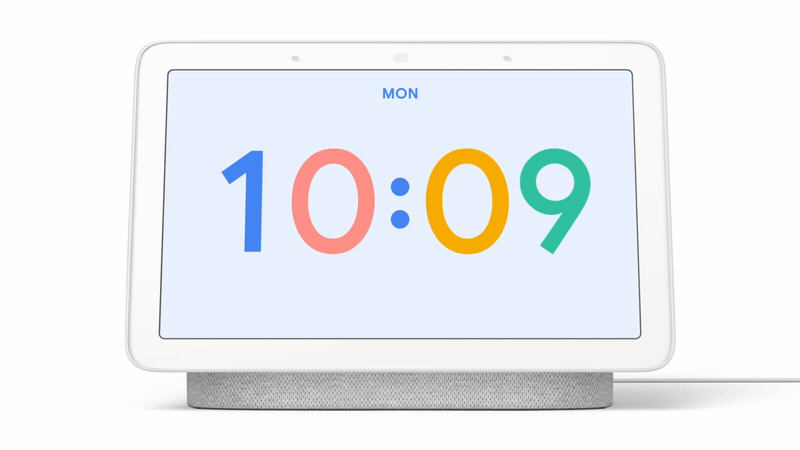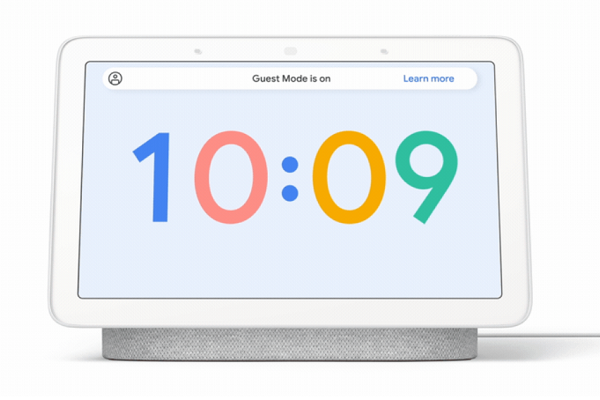Google Assistant’s ‘Guest Mode’ for Incognito Use Arrives
 Google Assistant has introduced Guest Mode to its smart speakers and displays that turns off personalized results and prevents the voice assistant from saving any data. Like the incognito mode for web browsers it clearly takes its cue from, Guest Mode partitions the interaction away from any user accounts for privacy and to prevent their preferences from impacting your account.
Google Assistant has introduced Guest Mode to its smart speakers and displays that turns off personalized results and prevents the voice assistant from saving any data. Like the incognito mode for web browsers it clearly takes its cue from, Guest Mode partitions the interaction away from any user accounts for privacy and to prevent their preferences from impacting your account.
Incognito Assistant
Any Google Nest smart speaker or smart display owner can activate Guest Mode by asking Google Assistant to turn it on or off. When it’s on, a little icon of a faceless person will appear in the corner, and users can check by asking the voice assistant. While Guest Mode is active, all of Google Assistant will largely operate the same, but it won’t check a user’s profile or any saved data to work out the best response, instead, the smart speaker or display performs like it just came out of the box and has an owner with a brand new Google account. Nothing said or done while Guest Mode is on is saved by Google either.
“It’s our responsibility to respect your privacy, no matter what device you’re using,” Google product manager Philippe de Lurand Pierre-Paul explained in a blog post. “And as more people discover the convenience of smart speakers and displays, we want to make sure it’s as easy to control how Google Assistant works with your data as it is to play your favorite song.”
Google first announced Guest Mode back in October and said it would arrive within a few weeks. The company hasn’t mentioned any reason for the delay, although it may have been just technical issues. Notably, the new Guest Mode repurposes the name of an earlier Google smart speaker feature for connecting a mobile device to a Google smart speaker to stream music without connecting to the device’s wifi network. That guest mode created a PIN that the visitor could use instead. Google shut down that version of Guest Mode a year ago, except on Chromecast devices.
Privacy Power
Guest Mode is primarily for what the name says, allowing a visitor to use the voice assistant without adding new data that could mess with the main user’s preferences. Pierre-Paul also describes how Guest Mode is good for keeping surprises from others in the household, like a recipe he looked up but didn’t want his family to know he was working on. But, while Google won’t save any data in Guest Mode, that doesn’t preclude third-party apps from doing so. Music streaming services or navigation apps might save information from any interaction on their own, even if the Nest speaker or display doesn’t retain it.
Still, Guest Mode fits with Google’s ongoing efforts to boost its reputation for privacy since the angry responses from many people over over the way Google Assistant and other voice assistants had collected and studied audio data. Google started rolling out features like voice commands for checking and deleting Google Assistant recordings and hotword sensitivity controls to limit accidental awakenings may make people feel better about using Google Assistant. Google also now asks users to opt-in to allow for human reviews of audio recorded by its software and just asks people to sign up. There are still problems, though. Last fall, Google admitted that some of its smart speakers this year recorded people even without wake word activation due to a software error. Despite these missteps, Google is clear on trying to project a seriousness about people’s privacy when using the voice assistant.
“Whatever your reason, we know there are times you may not want your own Google Assistant interactions saved — the choice is always yours,” Pierre-Paul said
Follow @voicebotai Follow @erichschwartz
Josh.AI Launches New Microphone and Central Server for Privacy-Focused Smart Homes
Google Admits Some Smart Speakers Mistakenly Recorded People Without Wake Word Activation
Google, Promising Privacy, Asks Voice Assistant Users to Join Audio Review Program









